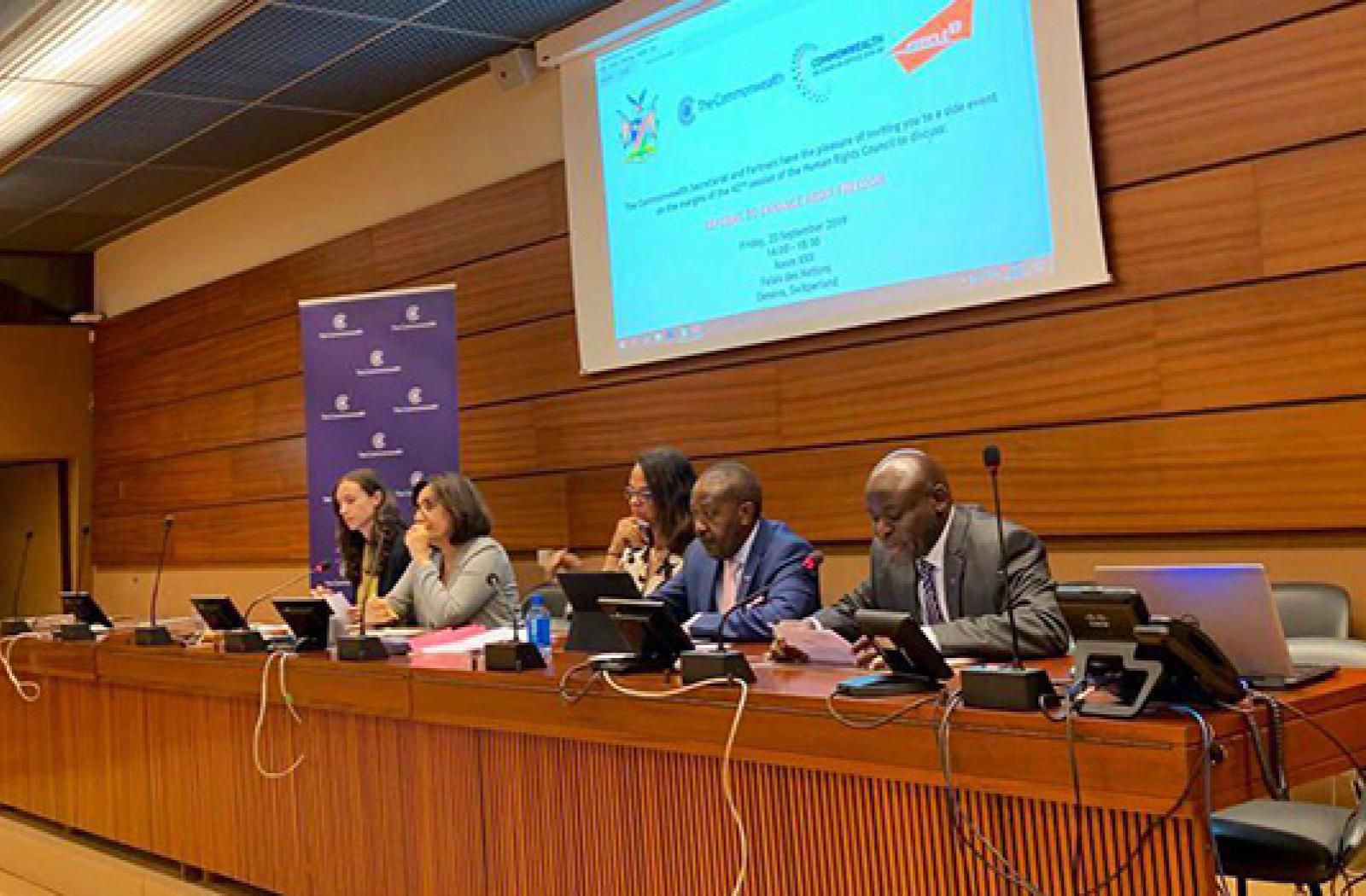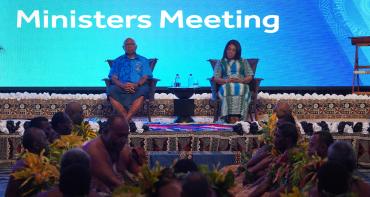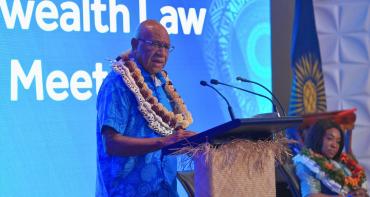Commonwealth countries have been told to reform laws restricting press freedom and to encourage media to work freely on all issues of public importance.

Commonwealth countries have been told to reform laws restricting press freedom and to encourage media to work freely on all issues of public importance.
Delegates from member countries made this appeal during a Commonwealth event hosted on the margins of the 42nd Session of the Human Rights Council in Geneva.
Delegates warned that threats to the free exchange of information undermine human rights and fundamental freedoms. They discussed the status of media freedom in member countries, reviewed proposals from the recent meetings and considered necessary reforms to uphold press freedom.
The Permanent Representative of Namibia, Ambassador Penda Andreas Naanda, spoke on reforms countries can implement to guarantee media freedom. He gave the example of provisions in the Constitution of Namibia that guarantee media freedom and non-derogation of this right under all circumstances, even during a state of emergency.
He said: “Having media self-regulation along with strong institutions such as media ombudsman as well as complaints and appeals committees, make it possible for ethics to be adhered to.
“An independent judiciary that upholds the constitutional guarantee of media freedom is an important safeguard for this fundamental right.”
The World Press Freedom Index 2019 shows that none of the Commonwealth countries sits among the bottom 25 nations which offer the least freedom to the press. In the same list, six member countries are ranked among the top 25 with the highest levels of press freedom.
The UK’s Deputy Permanent Representative, Ambassador Miriam Shearman, presented the recommendations of the 2019 Global Conference on Media Freedom which took place in July. She said these recommendations provide new means to improve the legal system which can protect media freedom.
She told delegates that a pledge was launched at the conference through which governments can commit to championing media freedom and joining a global coalition.
“There are 26 signatories so far and we are aiming for 40 during the UN General Assembly Ministerial in New York,” Ms Shearman said.
Delegates identified challenges journalists face while carrying out their duties such as harassment, restrictive laws, censorship and physical violence. They expressed concern over the increasing killing of journalists and stressed the need for a strong national will to protect them.
Tony Sisule, the Commonwealth’s Human Rights Adviser, said: “The Commonwealth is a strong advocate of media freedom and supports countries to strengthen institutions and share best practices to promote and protect fundamental freedoms and human rights.”
Mona Rishmawi from the Office of the High Commissioner for Human Rights (OHCHR) said the United Nations Security Council has condemned attacks on journalists and called on member states to ensure accountability and safety of journalists.
More than 55 officials and journalists from the Commonwealth and other countries attended the event, Reforms to Enhance Media Freedom. The event was organised in collaboration with the Permanent Missions of Namibia and the United Kingdom, Article 19 and OHCHR.



